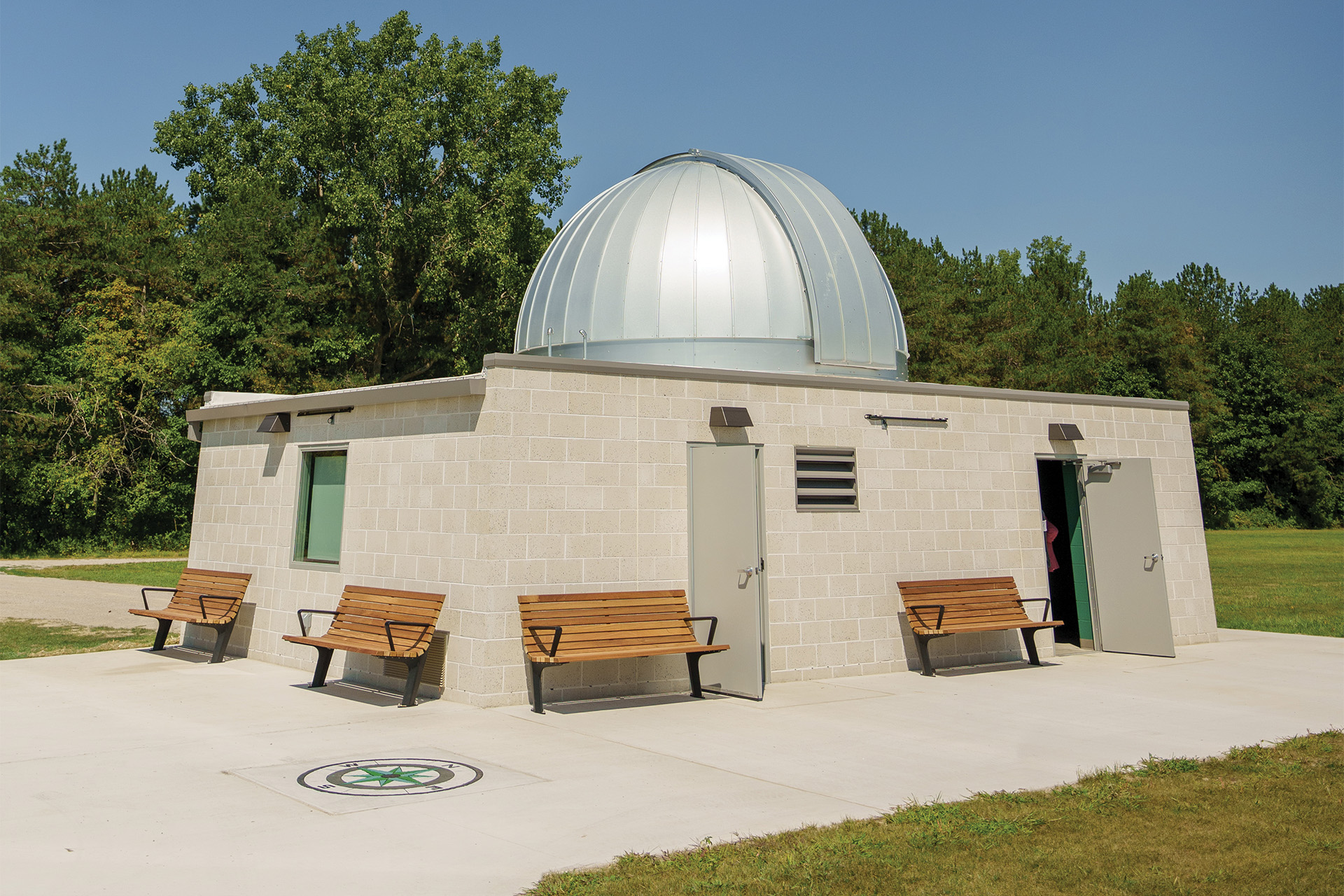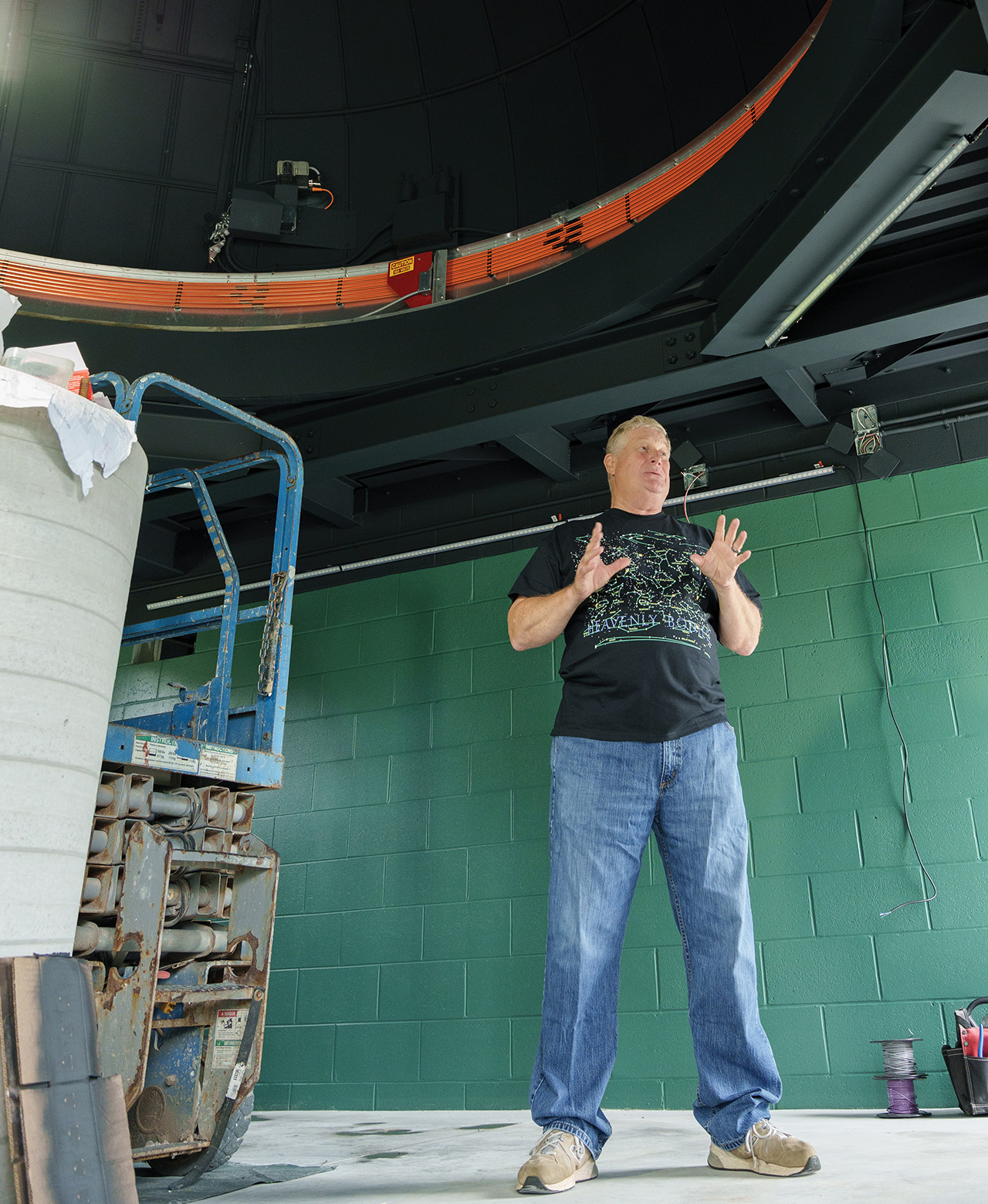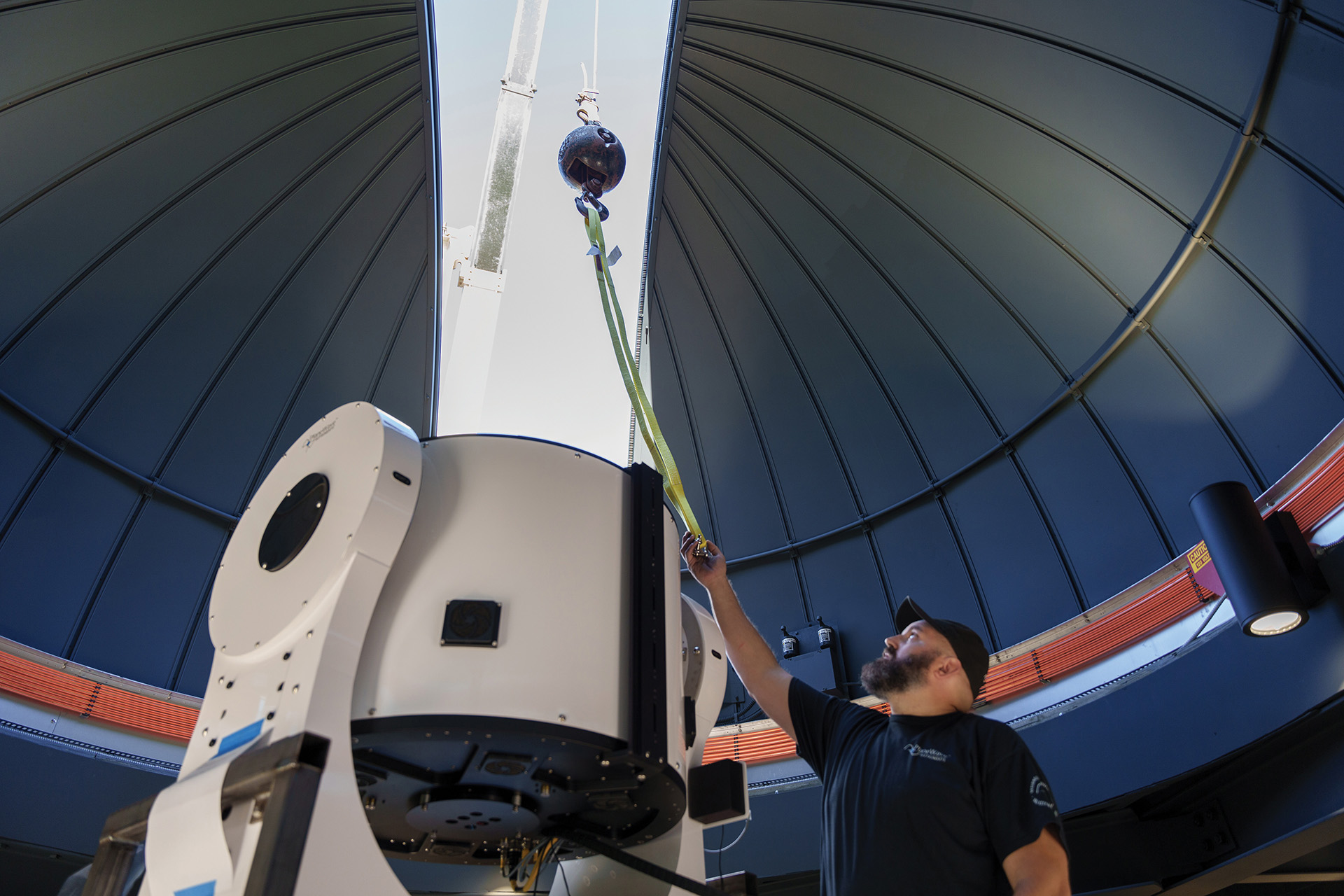Not too long ago, in a galaxy not so far, far away, the West Campus Master Plan was formulated to include the Observatory Hill. This plan was approved by President Emerita Dr. Jean Goodnow and the board of trustees and shared publicly in the fall of 2017. But, like many other projects, the observatory was put on hold while the college navigated the many challenges of the pandemic in 2020. For many people involved in this project, Delta’s observatory has been seven years in the making, but for Kevin Dehne, associate professor of physics, it has been a lifelong dream.
“I’ve been trying to make this happen for over 20 years,” says Professor Dehne. “This is something that will be very beneficial to Delta students, faculty, staff and our local communities. It’s very exciting to be a part of and to be able to bring something so incredible to the region. It’s really a dream come true.”
When the project finally began moving forward again, Professor Dehne and Aurelian Balan, professor of physics, took the lead. Many changes to the original plan had to be made including the location from the hill to the west side of the Athletic Field House. “There are a lot of considerations when building an observatory. In addition to having access to plumbing, electricity and Wi-Fi, we had to take into consideration an issue that many people don’t think about in their day-to-day lives,” says Professor Balan. “That’s the growing issue of light pollution. We have all these wonderful lights illuminating the parking lots on campus, but they can really hinder the quality of the images and the overall experience of observing the night sky.”
The CDK700 telescope was purchased from PlaneWave Instruments and contracts were established
for the construction and installation of the observatory. PlaneWave is a Michigan-based
telescope manufacturer. They’ve manufactured and installed telescopes for organizations
across the globe including NASA’s Goddard Space Flight Center in Maryland, the Australian
National University (ANU), the National Astronomical Research Institute of Thailand
(NARIT) and now—
the Delta Dome.
With a 28-inch (0.7 meters) diameter mirror, the Delta Dome observatory is now home to the largest accessible telescope in the state—equal to that of the Astronomical Observatory at Jackson College. Additional grant dollars from the Michigan Earth Science Teachers Association (MESTA) and the Great Lakes Star Gaze Committee (GLSG) allowed for the purchase of a high-quality imaging camera. The CDK700 telescope is housed in a rotating dome with a primary focus on astrophotography and astronomical research.
The telescope has precise data collection and advanced tracking capabilities which will provide a solid foundation for exploration and capturing vibrant images of celestial bodies.
Messier 13, aka the Great Hercules Globular Cluster, became the Delta Dome’s “First Light” image Thursday, September 12. “First Light is significant because it is the first photons of light from space the telescope mirror gathers. A test of its capabilities,” says Professor Dehne. “We decided on M13 because it is a visually impressive, bright deep space object. M13 is a globular cluster of stars 25,000 light years away, has a diameter of 145 light years and is made up of 300,000 to half a million stars. A “chandelier” if you will of the Milky Way galaxy. This time of year, it is high in the night sky and makes for a great view!”
Having an accessible observatory on campus will be a great benefit to Delta College students and the Great Lakes Bay Region. Students will feel those benefits immediately enhancing their ground observation experiences of galaxies, nebulae and other deep space objects. “The new observatory will vastly improve this type of observing,” exclaimed Professor Balan. A new “Observational Astronomy” class is also in development for students.
Monthly public open houses are being planned for the Delta Dome. These events will likely be scheduled near new Moon phases, on clear night skies and when the temperature is above 35˚F. Events dates are subject to change if conditions are not favorable. Additional dates may be considered when special astronomical events are expected such as a lunar eclipse.
For information on upcoming public Delta Dome events, call 989-686-9232.


